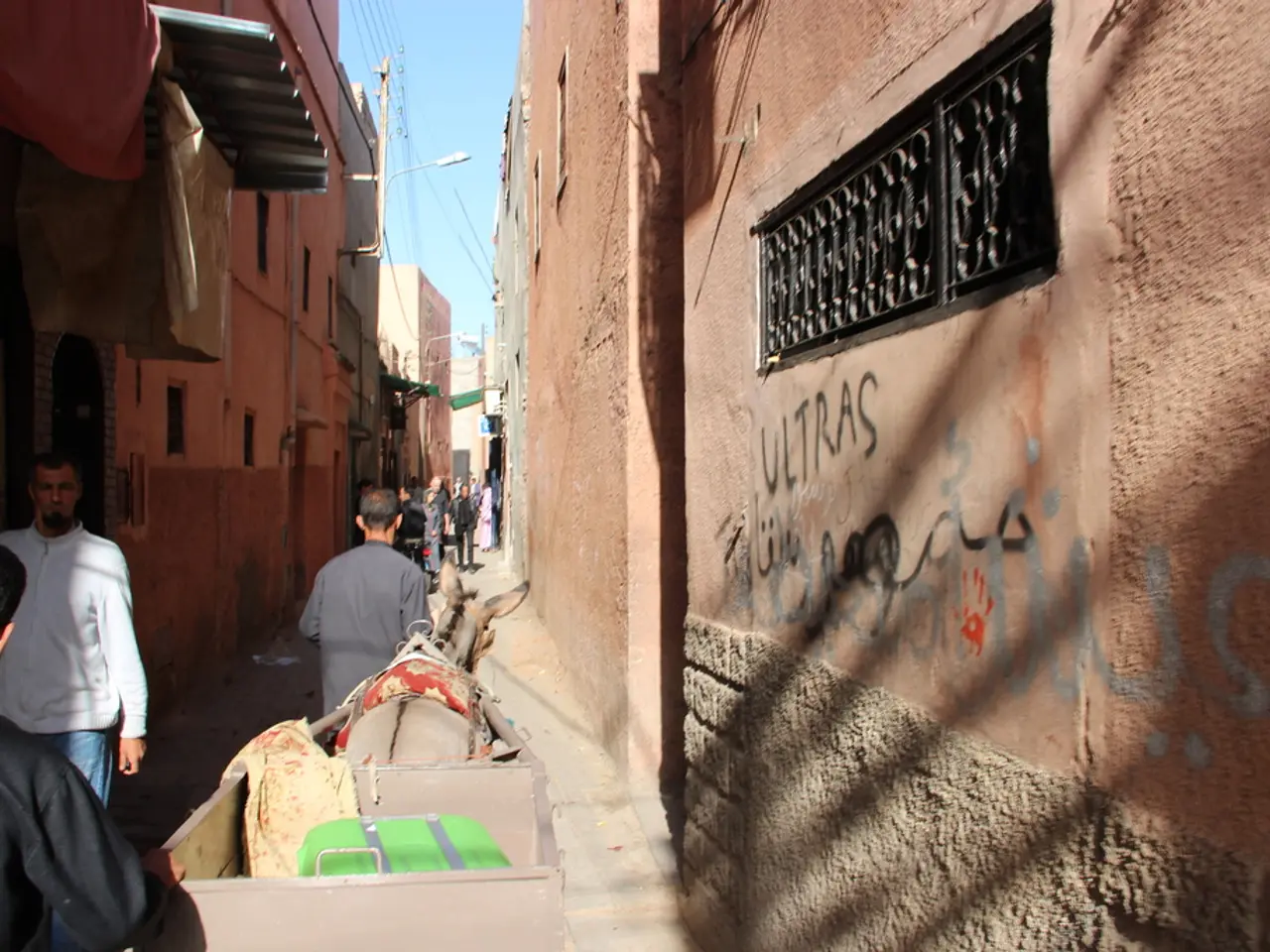United States Witnesses Historic Peace Accord: Azerbaijan and Armenia, Brokered by Trump, Ink Agreement at the White House
Peace Agreement Between Armenia and Azerbaijan: A Historic Step Towards Economic Cooperation and Regional Stability
After decades of hostilities, Armenia and Azerbaijan have signed a peace agreement that aims to promote economic cooperation in the Caucasus region. The agreement, brokered by the United States, was signed by Armenian Prime Minister Nikol Pashinyan and Azerbaijani President Ilham Aliyev on August 8, 2025, at the White House.
The agreement includes the creation of an international peace and prosperity corridor, previously known as the Zanguezur Corridor, stretching about 43 kilometers through Armenian territory. This strategic transit corridor, now called the "Trump Route for International Peace and Prosperity" (TRIPP), will connect Azerbaijan with its enclave of Nakhichevan, allowing unimpeded commercial transit.
The United States has been granted exclusive special development rights for 99 years on the corridor land. A consortium of American companies will be tasked with developing key infrastructure including rail, oil, gas pipelines, fiber optic cables, and potentially electricity transmission lines along the corridor. While Armenia will retain legal control of the territory, the United States will oversee the development of this strategic route.
The European Union has celebrated the signing of the peace agreement, emphasizing the importance of implementing the agreed measures to guarantee continuous and uninterrupted progress towards full normalization of the relationship between the two countries. The EU is ready to invest in regional connectivity and full openness, primarily benefiting the divided populations and bringing the region closer to sustainable peace, stability, and prosperity.
France has also described the agreement as a decisive step towards the normalization of its relations. However, the complex issue of the Nagorno-Karabakh territory, the focus of the conflict since the late 80s, will not be directly addressed in the joint declaration. Issues like the governance of Nagorno-Karabakh and the right of return for displaced ethnic Armenians remain unresolved and were not incorporated in the current peace text.
The peace agreement represents a substantial breakthrough in resolving the Armenia-Azerbaijan conflict with a strong emphasis on economic cooperation through infrastructure connectivity, notably the U.S.-controlled Zanguezur Corridor. However, final treaty ratification and resolution of outstanding political issues will be necessary for lasting peace.
President Trump has emphasized the agreement as a "historic day" for Armenia, Azerbaijan, the United States, and the world on his Truth Social platform. In a further show of support, President Aliyev proposed sending a letter to support Trump's candidacy for the Nobel Peace Prize.
The peace agreement marks the first formal resolution of a frozen conflict on the periphery of Russia since the end of the Cold War. While challenges and regional reactions remain, the agreement offers a promising path towards a more stable and prosperous future for the Caucasus region.
The peace agreement between Armenia and Azerbaijan, a historic step towards economic cooperation and regional stability, indirectly involves policy-and-legislation as it grants the United States exclusive special development rights for the "Trump Route for International Peace and Prosperity" (TRIPP) for 99 years. Moreover, the agreement, amidst the backdrop of war-and-conflicts, has sparked discussions in politics and general news, with France describing it as a decisive step towards the normalization of its relations. While the current peace text does not address the governance of Nagorno-Karabakh and the right of return for displaced ethnic Armenians, these issues remain a part of the ongoing conflict's politics.








